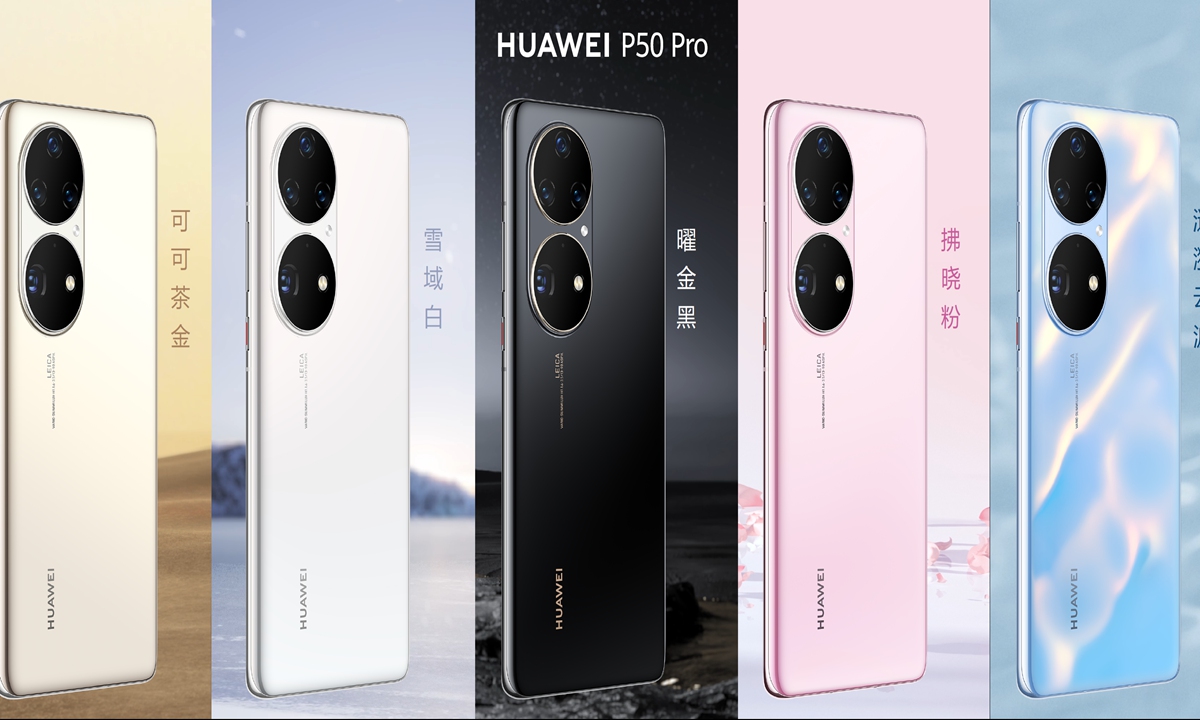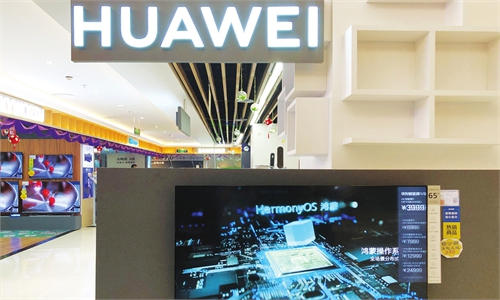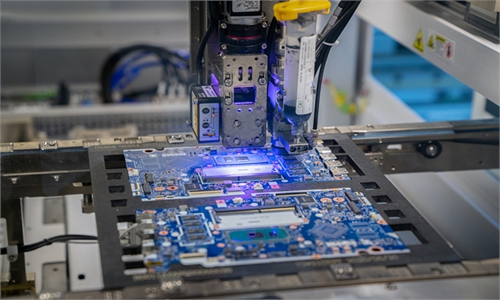
Photo: Courtesy of Huawei
Huawei launched its long-anticipated P50 handset series during an online event on Thursday evening, pre-loaded with the self-developed HarmonyOS software platform. It's the Chinese firm's first mobile series to be offered without Android or Google services amid the US ban.
However, the company said the new P50 series will not be equipped with 5G technology, a major setback and a sign of the difficulty it's facing due to US government supplies ban.
Although the series won't provide 5G, Huawei said "users with 4G+WiFi6+AI technology can still get better power consumption and communication performance experience."
As of Thursday, more than 40 million Huawei users had switched to the HarmonyOS software system, which means there are eight end users doing so every second, Yu Chengdong, chief executive of the company's consumer business group, said during the online launch event.
HarmonyOS was unveiled in 2019 as a "back-up" for Google's Android, as the Chinese company was barred from using Google's Android and other systems under a relentless US government crackdown. Research on the HarmonyOS actually started in 2012.
The OS is also seen as a way to limit the company's decline in handset market share.
The P50 series was supposed to be launched in March or April this year, but it was delayed due to serious semiconductor shortage, Jiang Junmu, a veteran industry analyst, told the Global Times on Thursday, adding that the launch still showed the firm's resilience despite the US ban.
Jiang noted that the US chip ban acts as a "Sword of Damocles" over the firm, and it's very likely that the future Mate 50 and P60 series could be just "concepts" that never come to mass production.
Huawei's mobile shares both at home and abroad have suffered greatly. According to Canalys' global smartphone shipment ranking for the second quarter of 2021, the top five were Samsung, Xiaomi, Apple, OPPO and Vivo, all of which having maintained growth. Among them, Xiaomi's shipments rose by 85 percent, surpassing Apple for the first time.
Huawei was no longer in the top five, with a market share of less than 10 percent.
Domestically, its main market, Huawei smartphones also fell out of the top five in the second quarter. Vivo led the list with a market share of 23.8 percent, followed by OPPO, Xiaomi, Apple and Honor, according to an IDC report.
But Huawei will definitely not give up on its mobile phone business, Jiang said. "When there is a turning point in the future, it can grasp the opportunity and make a fresh foray into the market," Jiang added.


